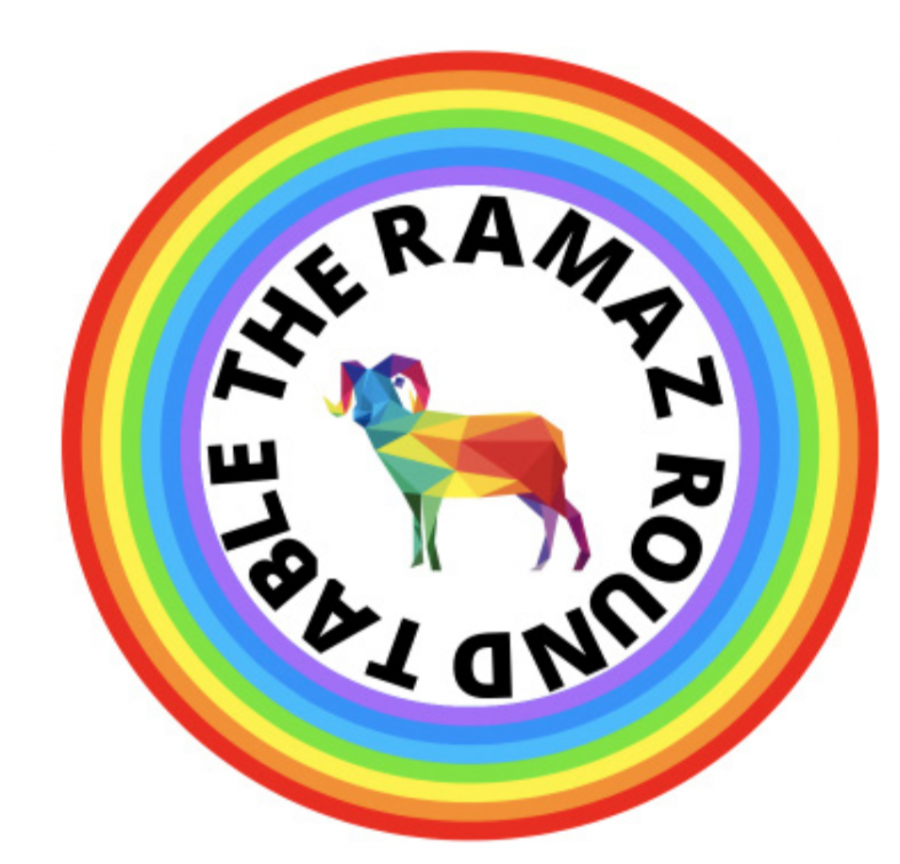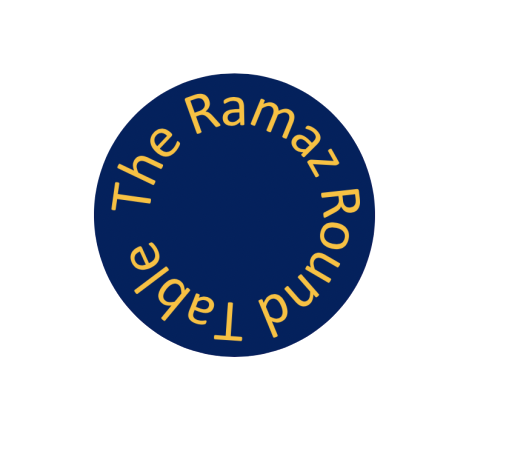RAMAZ ROUND TABLE: Should Ramaz institute a policy regarding gender pronouns on Zoom?
Noam Woldenberg ’22
Ramaz should remain neutral regarding whether students should be required to include their preferred pronouns on Zoom. Listing pronouns on Zoom should not be required by the school, but it definitely should not be banned either. While some people view the listing of one’s pronouns as a step towards inclusivity for the transgender community and for those whose gender identity doesn’t correspond with their biological sex, I do not see how requiring gender pronouns on Zoom would be helpful in achieving this goal for Ramaz within the context of our student body. At this point, I am fully aware of the pronouns my peers use, and there is no ambiguity regarding how I should address them.
There does not seem to be any benefits in having pronouns on Zoom as a requirement. A requirement to list pronouns could also result in more confusion if students decide to mock the initiative by changing their pronouns. This would undermine the intended purpose of moving towards an inclusive and transparent environment.
The school should not ban listing pronouns on Zoom either though, because students have a right to express how they would like to be addressed. I have seen a few students on Zoom display their pronouns on their screen throughout the year. Why should they be banned from doing so? Ultimately, if a student wants to list their pronouns – whether they correspond to their biological sex or not – that is their choice and Ramaz does not have a valid reason to be against that decision (as long as the student’s intention is not to generate laughter in a classroom).
I f students wish to list their pronouns, they by all means should go ahead. Any decision by students or faculty alike regarding the listing of their preferred pronouns should be respected.
Anonymous ’23 and Anonymous ’22
Recently, a few students have been posting their preferred pronouns as their Zoom name caption. This prompted the question of whether or not students can or should be posting their preferred pronouns on Zoom. Some students who currently display their pronouns on Zoom claim to be doing so in the capacity of supporting transgenders individuals. We are of the opinion that the administration should not mandate the practice of displaying one’s preferred pronouns on their Zoom name. Furthermore, we do not believe the administration should be recommending or encouraging students to participate in this trend. We believe that if these policies were to be put in place, it would actually have the effect of hurting those individuals who well-intentioned people may believe they are trying to help.
We also believe that encouraging and engaging in this behavior will disrupt the learning environment, and runs counter to the mission statement of Ramaz as a Modern Orthodox Yeshiva, with an emphasis on our commitment to Torah and mitzvot.
In accordance with the Ramaz mission Statement, our school rules should reflect the importance of commitment to Torah and mitzvot. The practice of writing one’s pronouns implies that these pronouns are not self-evident. The Torah states that: “A woman must not put on man’s apparel, nor shall a man wear women’s clothing…” Judaism also has a prohibition against doing many actions that are designated for the opposite sex. Modern Orthodox Jewish law is clear. Intersex conditions are recognised in Judaism, but one or the other set of pronouns is always required in such cases. These pronouns do not change.
Rashi expounds on this point further, saying “Neither shall a man dress as a woman in order to go and stay unnoticed amongst women.” He also comments that the same should be applied to women. The trappings of women should not be donned by men, or vice versa. As a yeshivah, Ramaz should not encourage, let alone require, pronouns to be listed alongside students’ names in their Zoom bios. However, more strictly logical arguments could be made against the adoption of such policies without resorting to the Torah, the literal word of God, or the mission statement of Ramaz.
We genuinely believe that forcing or encouraging everyone to place their preferred pronouns in their Zoom bios will actually have the opposite-than-intended effect of hurting any transgender students that may attend Ramaz. As far as we know, there are currently no open transgender students in the Ramaz High School, so the policy would not be directly helping anyone. However, there may be people in Ramaz who are still in the closet and haven’t yet come out to their classmates, whether because they are still questioning themselves or whether they simply do not feel comfortable sharing what is obviously sensitive personal information with everyone around them.
If this policy was put in place, supposedly to help them, these students would be forced to use their biological pronouns in their Zoom bios every day in order to avoid coming out, which will make them have to confront the issue every single time they log into a Zoom room in order to learn. Every day they will be reminded of their private issues in a public place when they might rather not think about it. This may very well lead to an exacerbation of their distress, rendering a policy like this completely counter-intuitive. Students come to Ramaz in order to study, and it would be foolish to disrupt their learning environments in order for a small group of people, who frankly most likely do not identify as transgender at all, to tout their own tolerance and virtue to others around them.
Proponents of the implementation of such a mandate or policy of encouragement will most likely argue that they actually want to create an environment that is more tolerant of transgender students, in the hopes that this will encourage them to come out more easily. But the fact is that if usage of pronouns in Zoom bios is merely encouraged, there most likely won’t be more people who decide to do it other than those who already do regardless. If usage of pronouns in Zoom bios is mandated, then many children will either treat it as a joke, disregard the policy, or accept it without a thought. Anyone with an iota of intelligence will plainly see that the underlying fundamentals of the culture and opinions of the student body will not be what has changed. Students who are merely being forced to do something they don’t care about, or even think is unnecessary, will not be any more or less inclined towards this issue because of a simple school policy.
We don’t think this will lead to any potential transgender students changing their minds about coming out, since they will see that the underlying reasons they haven’t yet done so are still there. The opinions of Ramaz students, and even the wider world at large, are things that the school cannot change with simple policy prescriptions. Whether or not Ramaz forces students to engage in a policy that will not have widespread support, or at least interest, this will not have the slightest bearing on changing the conditions for which potential transgender students might not be comfortable coming out. In fact, it will most likely keep their angst in the forefront of their minds during classes, which may disrupt their academic performances and mental health in unnecessary ways.
This does not mean that students should not treat their peers with derech eretz and menschlichkeit, as is clearly outlined in the Ramaz mission statement. I personally believe that anyone who is struggling with these sorts of issues should be given our utmost respect and care. However, after looking prudently and realistically at the effects such a policy would have on Ramaz, I think it is safe to say that this policy would unintentionally hurt transgender students in more ways than it would help them.
Moriel Weitzner ’24
Ramaz should allow its faculty and students to make their own decision regarding gender pronouns on Zoom, but should encourage it nonetheless. Realistically, requiring the entire faculty and student body to include pronouns in their Zoom name would be unachievable. Ideally, everyone should follow all school policies, in-person and online, but we know this is not a reality. For example, despite the rule that having your camera on during class is mandatory, this is rarely adhered. Similarly, it is not unreasonable to believe that students wouldn’t follow a pronoun policy either.
Unlike the camera rule, however, whether you display your pronouns or not has no affect on your ability to learn. The aim of instructing students to adhere to certain protocols such as keeping their cameras on is to ensure they are paying attention in class. In contrast, a pronoun policy has nothing to do with one’s ability to complete academic work, which is the inherent purpose of school. With school policy comes that if it is broken, the perpetrator is subject to consequences, which I don’t think is appropriate for this situation; a student or faculty member should not be penalized for merely not stating their pronouns.
However, I do think it is essential to acknowledge the benefits of a possible gender pronoun policy. Not only does this assure that everyone’s gender identity is respected, but it also sends a healthy message of support to the Transgender Community. It would show that Ramaz recognizes the validity of transgenderism and is committed to ensuring that all identities are respected. This could also make a positive mark on the well-being of potential transgender students. Studies have estimated that 5-10% of LGBTQ+ youth, depending on age and sex groups, have attempted suicide, a rate 1.5-3 times higher than heterosexual youth. The awareness of gender pronouns from a student’s fellow classmates and teachers could help them feel comforted in their identity. Overall, Ramaz should not impose nor ban the use of pronouns on Zoom, rather urge everyone to make the decision for themselves.
Charlotte Kleeger ’24
There is a stigma surrounding pronouns, and to be honest, I don’t understand why. Many think that sharing your pronouns on social media or on other platforms is odd. However, I believe that there is no reason for confusion. Everyone has pronouns, and this is not a new concept. I don’t think that Ramaz needs to create a policy regarding pronouns, at least not yet. Rather, including your pronouns next to your name on Zoom should be encouraged at first because as soon as it is a requirement without the Ramaz having mentioned anything before on the topic, it will receive a more negative response. For example, students using the “nor/mal” pronoun is a possibility, which would be a clear attempt to mock others. Students who choose this option, or anything similar, should receive some form of consequence. I am certain that Ramaz strives to be an inclusive and welcoming environment for all, and therefore, everyone should be encouraged to share their pronouns in order to make the school a safe place for transgender students.
Aviva Lehman ’23
Gender pronouns on Zoom shouldn’t be required but heavily encouraged. Requiring all students to put their pronouns in their Zoom name could potentially put transgender students in the position to either out themselves or open themselves up to ridicule from transphobic students.
On the other hand, I see no harm in heavily encouraging those who are comfortable sharing their pronouns to put them in their Zoom name. After all, everyone has pronouns, and no one likes to be misgendered, whether they are trangender or not. This policy could function similarly to the recent phenomenon of people putting their pronouns in their social media bio to create a safer online community for transgender users.
Previously, putting your pronouns in your social media bio was mainly done by transgender individuals. Therefore, transphobic users would cyberbully those with pronouns in their bio. In response, cisgender users began also putting their pronouns in their bio so transphobic users couldn’t use that as a reason to harass Transgender individuals. I see schools providing a similar mindset to Zoom names as an equally effective way of making a safer and more welcoming environment for Transgender people.








